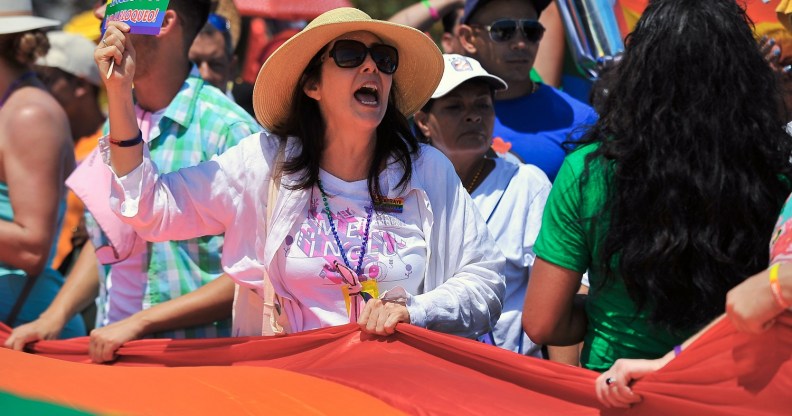Critics say Mariela Castro LGBT documentary ‘glosses over’ Cuba’s rights abuses

A new HBO documentary detailing Mariela Castro’s fight for LGBT equality in Cuba has been described as “pure propaganda” by critics and accused “adding a thin gloss” over Cuba’s historic LGBT rights abuses.
‘Mariela Castro’s March: Cuba’s LGBT Revolution’ aired on HBO on Monday night, three days after the death of Mariela’s revolutionary uncle Fidel.
The film follows Mariela through the streets of Cuba through gay parades, galas and personal interviews with LGBT people about the social stigma they face in daily life.
Some critics highlighted the documentary’s lack of depth, claiming the film does not address Mariela’s reasons for choosing LGBT rights as her personal crusade, or properly investigate the brutal treatment of LGBT people within Cuba under Fidel Castro’s regime.
The documentary also skims over what her father, current leader Raúl Castro, thinks about her stance on LGBT rights.
Mariela Castro’s March: Cuba’s LGBT Revolution (HBO Documentary Films)
Subscribe to the HBO Docs YouTube: https://itsh.bo/10r45k3 Mariela Castro’s March: Cuba’s LGBT Revolution premieres Monday, November 28, only on HBO. HBO Docs on Facebook: https://www.facebook.com/hbodocs HBO Docs on Twitter: https://twitter.com/HBODocs HBO Documentary Films homepage: https://itsh.bo/I83ODm. HBO Documentary Films on HBO GO® https://itsh.bo/kUIs4w. HBO Documentary Films on Connect: https://connect.hbo.com/documentaries It’s HBO.
The Wall Street Journal’s John Anderson said the film was “at best, weak filmmaking and, at worst, pure propaganda” but acknowledged the constraints that director Jon Alpert may have been working under. Vogue’s Julia Felsenthal concluded the film adds a “thin gloss” to Cuba’s chequered LGBT rights history and does not ask crucial questions about how Mariela’s pro-LGBT stance impacts on her relationship with her father, or what her feelings are on Cuba’s previous rights abuses.
Mariela is a member of the Cuban Parliament and the director of the Cuban National Center For Sex Education, putting her in a unique place to champion the rights of marginalised groups within Cuba.
She has positioned herself as an advocate for LGBT rights in recent years, leading gay pride parades and calling for gay rights reforms.

